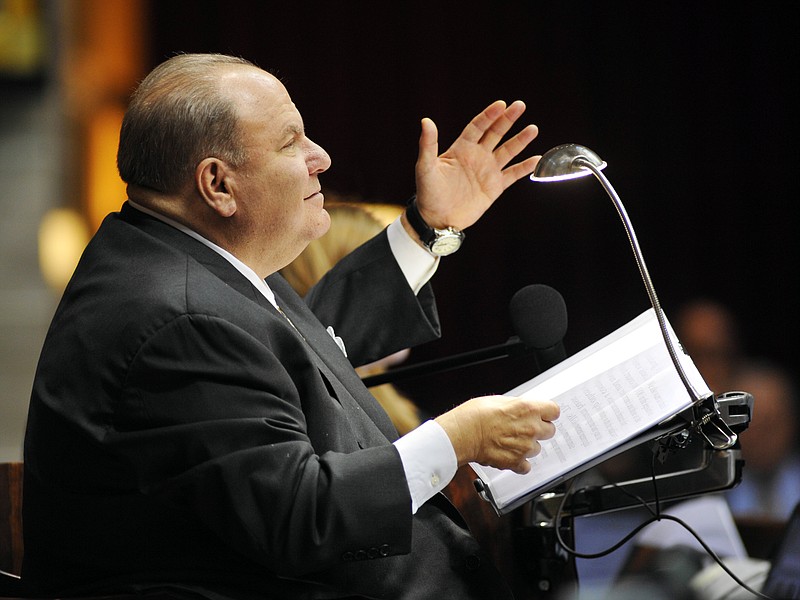By DAVID A. LIEB
Associated Press
JEFFERSON CITY, Mo. (AP) - More than 12,000 criminal defendants have successfully completed special substance abuse treatment programs since they began in Missouri two decades ago, the state's top judge said Wednesday.
Missouri Chief Justice Richard Teitelman highlighted the treatment courts as part of his annual State of the Judiciary address to a joint session of the House and Senate.
The state's first drug court began 20 years ago in Jackson County to divert nonviolent, substance-abuse offenders to judicially supervised treatment programs instead of prisons. The state now has treatment court divisions in all but two of its 45 judicial circuits, Teitelman said.
"Missouri has become a national leader in drug courts," Teitleman said.
The drug courts also have served as a model to start special treatment courts for drunken driving offenders and military veterans who are struggling with addictions and mental health issues.
According to a report released Wednesday by the judiciary, Missouri had 136 treatment court programs with 3,500 adult and juvenile participants in 2012. Diverting 3,000 of those adult offenders from prison saved about $50 million, the judicial report said.
Teitelman said more than half of those who enter the treatment courts successfully complete the programs. The judicial report said 7.1 percent of adults who complete drug court programs commit additional crimes within the next 30 months, about half the 15 percent recidivism rate for those who do not go through the programs. The recidivism rate for adults who complete DWI court programs is 6.1 percent, compared to 18 percent recidivism rate for those who do not go through the programs.
Teitelman, who is legally blind, also used the State of the Judiciary speech to highlight the successes of racial minorities and the blind and praised a constitution project for high school students in rural Texas County, Mo. He said the Supreme Court is working to provide closed-captioning services for its oral arguments that are streamed over the Internet, so those who are have difficulty hearing can follow along. The court will be providing informational brochures in Braille and via audio files for the blind, he said.

